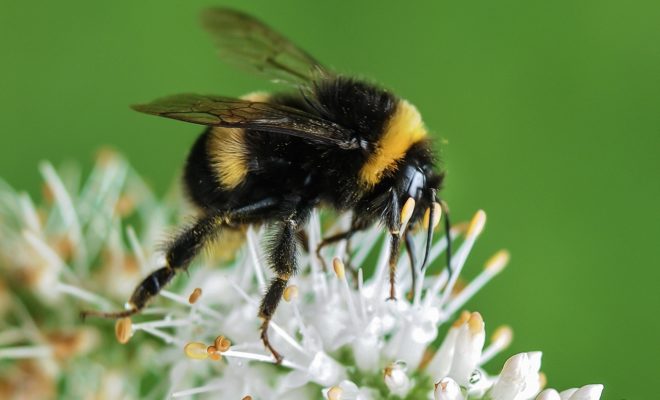
Pollinator Plants
With reports of bee numbers on the decline, green-fingered Brits have been offered a list of seven plants that can help attract pollinating insects to the garden.
Gardening gurus at BillyOh.com have compiled a list of the best flowers to place in the garden which will entice bees, butterflies and other pollinators.
Pollination is fundamental to the way many plants reproduce, and certain insects such as bees and butterflies help aid this process.
Even critters such as mosquitoes, moths, and hoverflies possess pollinating skills, and so are important to the natural world.
Despite this, the number of pollinating insects has decreased rapidly over the last 20 years, partly due to the increasing use of chemical pesticides which can’t differentiate between ‘good’ and ‘bad’ insects.
Loss of habitat is also to blame, as many gardens are left sparse.
Without these critters, the nation would be forced to rely on the arduous process of hand pollination which is incredibly expensive and time-consuming.
A spokesperson for BillyOh.com explained “Unfortunately over the past couple of decades the use of pesticides has fast become the norm, in turn leaving many of our gardens without vital pollinating insects.
“However, it isn’t too late to reverse the damage, and we can all do our bit by ensuring that when planting we prioritize flowers and shrubs that attract beneficial critters.
“One plant at a time, we can restore our gardens and prevent any more damage to be caused for future generations.”
Lavender
These fragrant plants are extremely rich in pollen and nectar during the summer months and so are a popular choice for bees and butterflies. As well as being incredibly easy to grow and maintain, the plant retains its scent even when dried.
Phacelia
Beloved by insects such as lacewings and ladybirds, which will feed on the unwelcome aphids. Brilliant for attracting bees to the garden as well as looking incredibly beautiful.
Scabious
This plant flowers for months, and right the way through summer. It has plenty of high-quality rich nectar for butterflies to feast on, and finches and linnets are also fans of this flower.
Fennel
The miniature umbrellas of bright yellow blossoms attract a variety of pollinating insects in the summer. They are best grown in sunny conditions.
Monarda
The colourful clusters of long-tubed flowers are also known for attracting hummingbirds – a welcome sight in any garden. They thrive the best in hot conditions and should be planted in spring ready to thrive in the summer.
Sweet Alyssum
These tiny white clusters of flowers exude the scent of sweet honey, perfect for attracting bees and male mosquitos which feast on the rich nectar.
Asters
These perennials bloom from August to October and so are incredibly important during these later seasons, as they provide a vital food source for native bees. The plant can also help sustain monarch butterflies during their August migration.


You must be logged in to post a comment Login